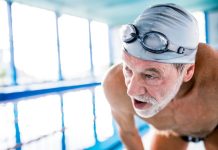
Recovering from a stroke can be a lengthy and challenging process. It involves healing both the body and the mind.
In recent years, meditation has emerged as a beneficial tool in the journey to recovery for stroke survivors. Simple to learn and practice, meditation can help manage the physical and psychological effects post-stroke.
Meditation is a practice where an individual uses techniques such as mindfulness, or focusing the mind on a particular object, thought, or activity, to train attention and awareness, and achieve a mentally clear and emotionally calm and stable state.
For stroke survivors, this can mean better stress management, reduced blood pressure, and improved overall well-being.
Physical Benefits: One of the primary ways meditation aids stroke recovery is through the reduction of stress and anxiety. High levels of stress can increase blood pressure, which is particularly dangerous for stroke survivors as it can lead to further vascular damage.
A study published in the journal Stroke highlighted that meditation could effectively reduce blood pressure by calming the body’s stress response.
This calming effect is believed to enhance the relaxation of the blood vessels and improve blood flow, which is crucial for healing and maintaining brain health after a stroke.
Meditation can also improve another essential aspect of stroke recovery: sleep quality. Many stroke survivors struggle with sleep disturbances, which can hinder the body’s ability to heal.
Regular meditation promotes better sleep by helping to regulate sleep patterns and decrease sleep disturbances, allowing for more effective recovery.
Cognitive and Emotional Benefits: Cognitively, meditation has been shown to help improve attention and mental focus, which are often affected by a stroke.
Neuroplasticity, the brain’s ability to reorganize itself by forming new neural connections, plays a crucial role in stroke recovery. Meditation supports this process.
Research indicates that regular meditation can increase brain activity in areas involved in learning and memory processes.
Emotionally, meditation helps manage depression and anxiety, which are common in stroke survivors. The mindfulness aspect of meditation encourages practitioners to live in the present moment and engage in a more positive outlook on life.
This can significantly reduce feelings of depression and help individuals cope with the emotional challenges that come with recovery.
Practicing meditation is accessible to most stroke survivors because it requires little physical effort and can be adapted to different abilities.
Guided meditation, for example, where a teacher or a recording guides you through the meditation process, is an excellent option for those who may find it challenging to focus or relax on their own.
Several studies have demonstrated the benefits of meditation for stroke recovery.
For instance, a clinical trial found that stroke survivors who practiced meditation regularly showed significant improvement in their overall mental health, emotional well-being, and even some enhancement in physical functioning.
Incorporating meditation into the recovery process after a stroke can provide substantial benefits, helping survivors not only manage the physical aftermath but also improve their mental and emotional health.
While it should not replace traditional medical treatments, it is a valuable complement to these therapies. By practicing meditation, stroke survivors can take an active role in their recovery, promoting better health outcomes and improving their quality of life.
If you care about stroke, please read studies about how to eat to prevent stroke, and diets high in flavonoids could help reduce stroke risk.
For more information about health, please see recent studies about how Mediterranean diet could protect your brain health, and wild blueberries can benefit your heart and brain.
Copyright © 2024 Knowridge Science Report. All rights reserved.



